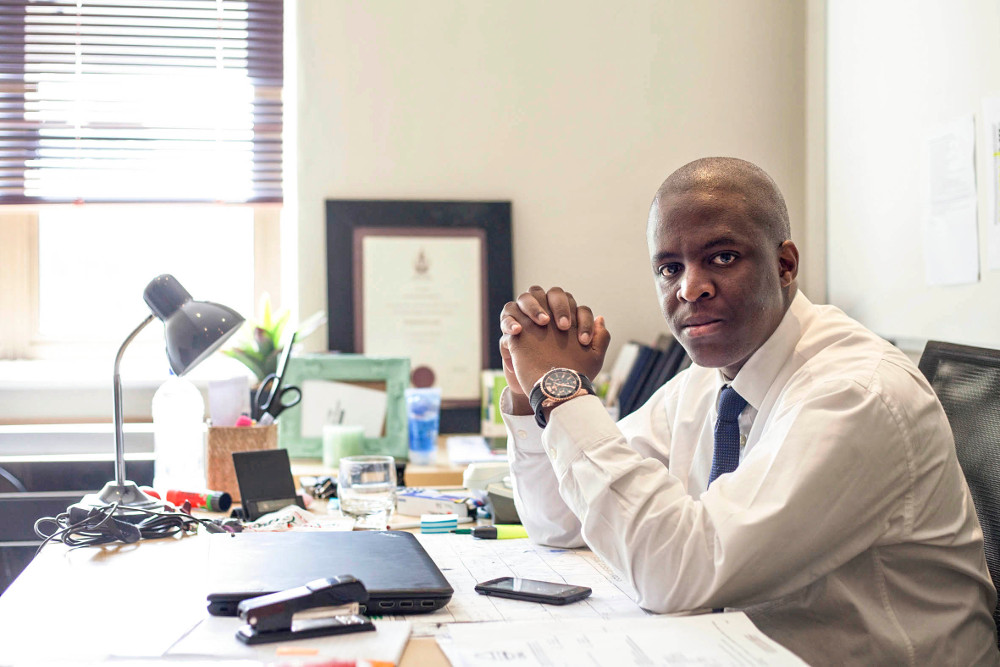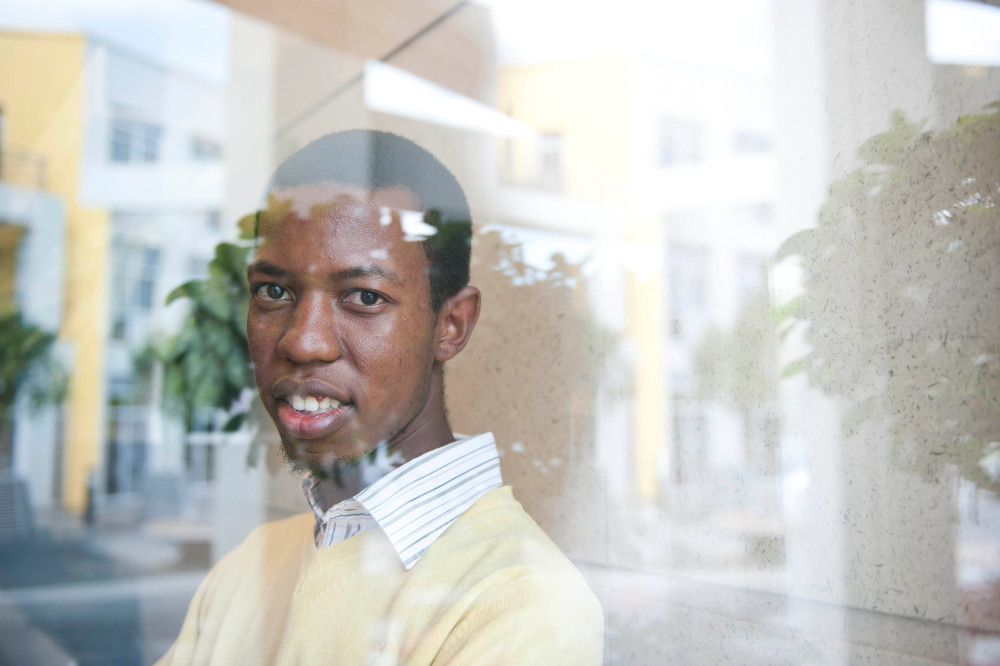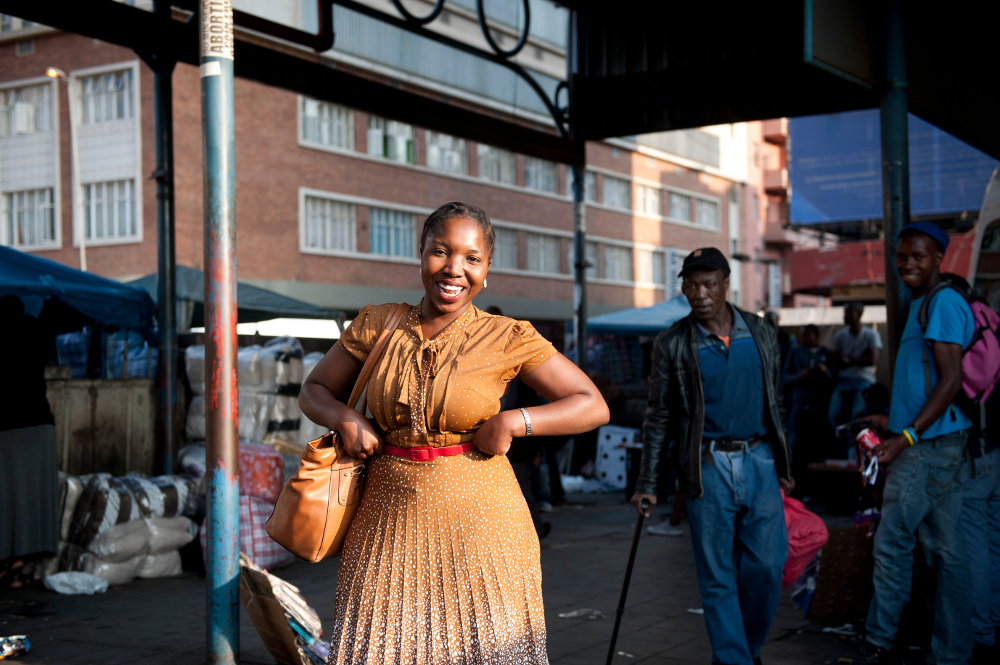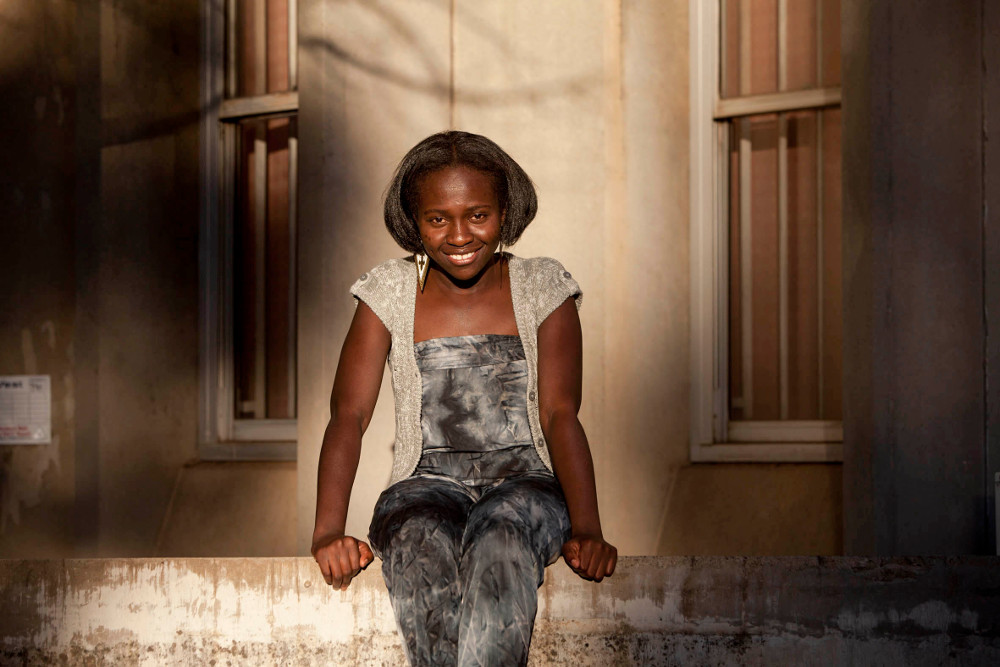There is a certain anxiety that comes with knowing that your aunt, who raised you for a good part of your adolescent life, might not have money to buy a loaf of bread. Or when you are inundated with “Please call me, need cash pls” SMSes from your close cousin, who used to provide reasons for needing the cash – R35 for 15 minutes at the internet café to submit a job application, perhaps – but no longer bothers with the details.
You convince yourself that the regular tithe you pay to your family is fair and due, and that you can manage. Until your skorokoro breaks down in the middle of a busy intersection on the day you have an important meeting with your boss and new clients – and you remember your manager’s doubtful “Are you sure you can handle this account?” as the tow truck wheels off with your car, and realise that the R1 750 it is going to cost you was to have paid for the petrol to ferry family members to a funeral in Mpumalanga.
Welcome to the world of “black tax” – the extra money that black professionals are coughing up every month to support their extended families. If you are lucky enough to have a job, it is seen as your duty to subsidise relatives who are less well off.
Here are some of the stories of young South Africans who are buckling under the financial pressure of being the family breadwinners.

Kgomotso Mauguwane (22) always has his mother, older sister and four nieces and nephews in the back of his mind. And he is likely in the back of theirs, as they wait for his monthly contribution to their basic necessities.
“My mother was a domestic worker and tried to put my sister through nursing school, but that did not work out and my sister had to settle into a job due to lack of funds,” he says.
For this third-year BCom law student who also holds down a job, more than half his salary goes back home every month.
“So what usually happens [is] when I get paid, I will get my sister to buy whatever groceries [are] needed in the house. And I will give them money for electricity, give them the money to pay for their burial societies. I basically fill in the gaps of whatever they want, and give my mother money as well.”
Mauguwane says at times he feels stuck in a vicious cycle of poverty that will never end, unless he wins the lottery. “I think that my kids will probably have to provide for me when I’m old.”
At just 22, he is an old hand at paying it forward – and backward. To the one side is his older sister and her two children, to the other side are his late sister’s two children. On each end he sees an opportunity to improve their lives.
“We had to move out of rural Limpopo and … so I contribute at least R1 500 a month to renovate the new family home in Mpumalanga.”
Mauguwane has opened a savings account to try to break the cycle. “I know that it won’t pay [university] tuition fees for my nieces and nephews, but it will go towards paying for their registration at least.”

Crispin Phiri (26), a candidate attorney at a Johannesburg law firm, believes the term “black tax” is apt.
“Black tax is very real and is an exclusively black experience,” Phiri says. “It’s how most black people are brought up. You are brought up to first look out for your family; you can’t be living in luxury while your family struggles.”
Phiri lives with his mother and pays his 17-year-old sister’s school fees.
“I understand that we are an unequal society and this is the one way of addressing that inequality so that the next generation is better off than we were, and can live a life that is fairly more comfortable than ours.”
Society continues to reinforce the past in various ways, Phiri believes.
“Our entire economy is still built around exclusively white areas, meaning that you have to leave your black area … and be an economic migrant to go somewhere else to work, which is highly problematic for black people.”

Mbali Nhlapo (25) and her mother are the only people working and contributing to a family of up to 14 dependants. “I might be forgetting someone,” she says.
This includes her unemployed brother, his two children and his girlfriend’s two children; three unemployed cousins with three children; an unemployed aunt and her three children; and her grandmother, who receives a government pension.
Travelling to work is a continuous struggle.“I live in Daveyton and have had to find a job in Randburg because there aren’t many opportunities where I live,” this business consultant says. “It’s either I’m overqualified or I’m demanding too much money, so I don’t have a say in how much I earn. I mean, you’re black! You’re not allowed to have a voice.”
She describes her life as a constant sacrifice of not only luxuries, but also necessities such as insurance.
“If I should get medical aid, I would have to cover me and my daughter only. And that’s R2 000. With that money I could do so much more. It’s an unnecessary expense.”
By mid-month Nhlapo’s pockets are empty and shame sets in, as she can’t provide any more for her family.

Esther Buabeng-Baudoo (25) is a chemical engineering master’s student at the University of the Witwatersrand. “It’s by the grace of God that I was able to go through school and graduate, and am now doing my master’s,” she says.
Buabeng-Baudoo lives in a flat in Johannesburg, but contributes to the tuition of her two siblings, aged 19 and 23, and helps her parents in Pretoria with living expenses.
“After passing my matric with distinction, I got three jobs because I didn’t have enough money to study. I worked at McDonald’s on weekdays, on weekends I packed clothes at Pep Stores and then I worked at Dial-a-Movie on Sundays,” she relates.
From these accounts it’s painfully clear that many young people, far from seeing the world as their oyster, are feeling the strain, torn between a sense of responsibility to their families and their own aspirations.
Being the meat in the sandwich is no picnic
Gerald Mwandiambira, the acting chief executive of the South African Savings Institute, prefers to refer to the “sandwich generation” rather than “black tax” because the former term “tends to be more inclusive of other races. This problem is most common in previously disadvantaged groups, but is equally applicable to other groups.”
He says these individuals, ranging in age from their early 20s to their 50s, are often stuck in the middle of supporting two generations financially and are therefore unable to save adequately for their own needs and retirement.
“They risk sentencing their offspring to being the next sandwich generation due to their inability to save for retirement,” Mwandiambira says.
The recent student protests, he believes, were “a result of the students understanding that their families are already stretched and can no longer afford any increases”.
He says: “#FeesMustFall was a last-ditch effort to prevent dropouts for financial reasons. Most of the parents of the #FeesMustFall generation are already subject to black tax or ubuntu tax, supporting their parents financially.”
Black tax is perpetuated by historical holdovers and societal problems, but Mwandiambira believes that education and a shift in perspectives may make a difference – starting with the perception that previous generations were better at saving than the current one is.
“The cost of living was lower and many basic services and utilities were free, as opposed to now,” he says. “Also, the rural population helped with saving. Most of the population now is urban.”
Young people, Mwandiambira says, start work burdened by student debt and simply never achieve an earnings surplus. To cover deficits, they take out more loans and get stuck in a cycle of debt that can last their entire lives. The lack of financial education – even for the highly educated – makes matters worse.
“The basic money management skills are often not taught formally and hence many people struggle with personal finances, regardless of their earnings or level of tertiary education. Often, it is those who earn more who are more indebted.”
The good news is that money management skills have been made part of the school curriculum. The bad news is that the current crop of tertiary students, and the generation preceding them, were not so fortunate.
They can, however, benefit from drives to encourage entrepreneurship. “We need more entrepreneurship opportunities to teach people that a job is not the only way of accumulating wealth,” Mwandiambira says. “We need to educate people on creating wealth.”
Mwandiambira says that some black families live beyond their means. “This is a result of blacks playing catch-up to their white counterparts who benefited in many instances from apartheid, and still benefit from corporate managers who pay white graduates more than blacks. Lifestyle observations of black colleagues and their white counterparts suggest a difference in earnings.”
Mosibudi Ratlebjane is the Rosa Luxemburg Foundation’s social justice fellow at the Mail & Guardian.
Student portraits by Oupa Nkosi and Madelene Cronje.